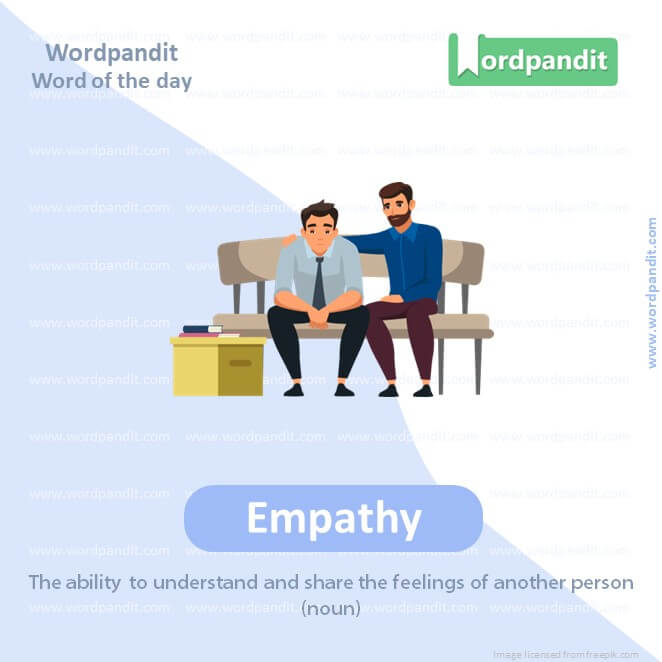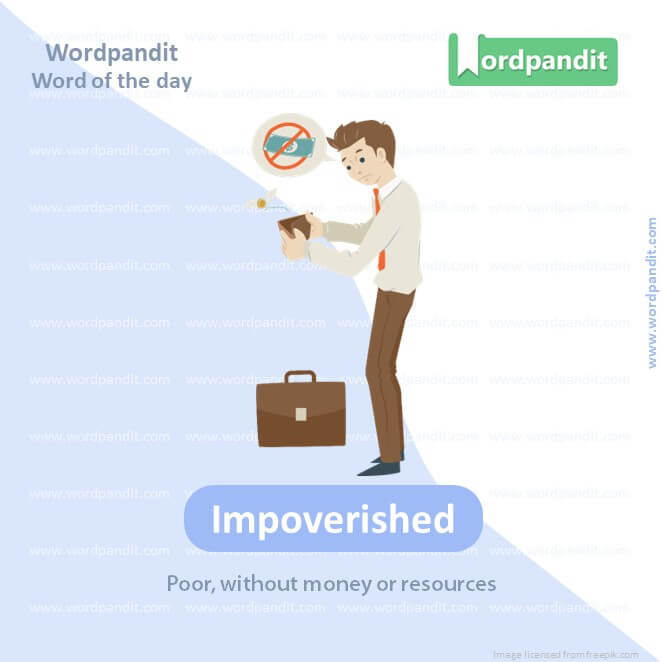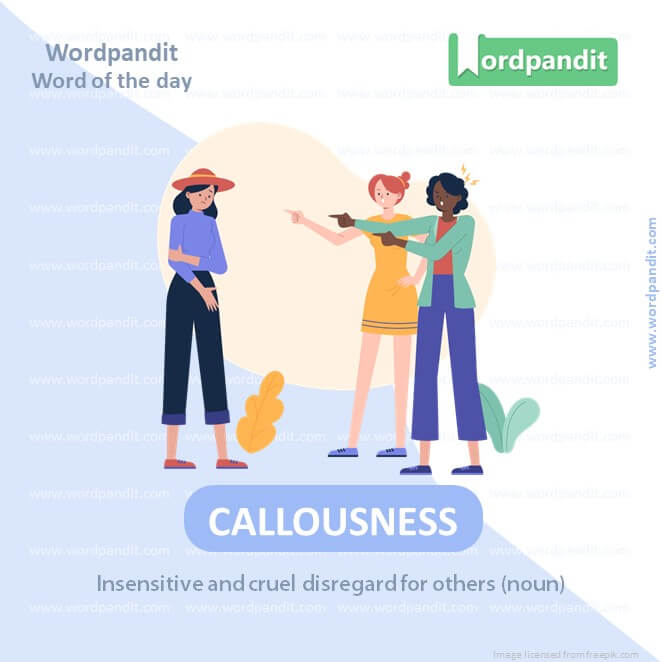Daily Vocabulary Words: List of Daily Used Words in Leading Indian Newspapers
Hi there. Welcome to this special section @ Wordpandit. Our endeavour here is straightforward: highlighting daily vocabulary words that you would come across in leading newspapers in the country. We have included the following newspapers in our selection:
• The Times of India
• The Economic Times
• Hindustan Times
• Mint
• Indian Express
We are putting in extensive work to develop your vocabulary. All you have to do is be regular with this section and check out this post daily. This is your repository of commonly used words; essentially, we are posting a list of daily used words. Hence, this has significant practical application as it teaches you words that are commonly used in leading publications mentioned above.
Visit the website daily to learn words from leading Indian newspapers.
WORD-1: Exhorted
CONTEXT: Rahul’s great-grandfather, Jawaharlal Nehru, had exhorted (in a letter to chief ministers in 1961) “against anything which leads to inefficiency and second-rate standards.
SOURCE: Indian express
EXPLANATORY PARAGRAPH: Imagine your coach yelling encouraging words to motivate you to run faster during a race. That’s what it means to “exhort.” It’s when someone strongly encourages or urges you to do something.
MEANING: Urged strongly; encouraged (verb).
PRONUNCIATION: ig-ZORT-ed
SYNONYMS: urged, encouraged, implored, pressed, pushed
USAGE EXAMPLES:
1. The captain exhorted his team to give their best effort.
2. She exhorted the crowd to remain calm during the emergency.
3. The teacher exhorted the students to study hard for the upcoming exams.
4. He was exhorted by his mentors to pursue his dreams.

WORD-2: Denouement
CONTEXT: the logical and inevitable denouement of Rahul’s activism for an institutional survey will be the demand for quotas for certain castes and minorities in the private sector, whose weight in the national economy is rapidly growing.
SOURCE: Indian express
EXPLANATORY PARAGRAPH: Imagine you’re watching a movie and you finally get to the part where all the mysteries are solved and everything comes to an end. That part of the story is called the “denouement.” It’s when everything in the story wraps up and you find out how it all ends.
MEANING: The final part of a story where the strands of the plot are drawn
together and matters are explained or resolved (Noun).
PRONUNCIATION: day-noo-MAHN
SYNONYMS: conclusion, finale, resolution, ending, culmination
USAGE EXAMPLES:
1. The denouement of the movie left the audience in tears.
2. The novel builds up to a shocking denouement.
3. Everyone was eager to see how the denouement would tie up the loose ends.
4. The denouement revealed the true identity of the mysterious character.
WORD-3: Deepening
CONTEXT: The national goal of reducing disparities is best achieved not by prioritising the divisive category of castes and religious minorities, but by empowering all our poor brethren without deepening caste and communal fault lines.
SOURCE: Indian express
EXPLANATORY PARAGRAPH: Imagine you’re digging a hole in the sandbox to make it bigger and deeper. That action of making the hole deeper is called “deepening.” It means making something deeper or more intense.
MEANING: Making or becoming deeper or more intense (verb).
PRONUNCIATION: DEE-puh-ning
SYNONYMS: intensifying, increasing, enhancing, strengthening, magnifying
USAGE EXAMPLES:
1. The crisis is deepening, with no solution in sight.
2. She is deepening her knowledge of the subject through study.
3. The mystery deepened as new evidence was discovered.
4. The colors in the sunset deepened as the evening progressed.

WORD-4: Empathy
CONTEXT: An honest and long-term focus on wealth-creation at the bottom of the social pyramid through a combination of good governance, politics of dialogue and consensus rather than confrontation, and whole-society mobilisation of the spirit of unity, solidarity and empathy.
SOURCE: Indian express
EXPLANATORY PARAGRAPH: Imagine one of your friends falls down and feels sad. You understand how they feel and want to help make them feel better because you know it’s not nice to feel hurt. That’s called having “empathy.” It means understanding and sharing the feelings of another person.
MEANING: The ability to understand and share the feelings of another person
(noun).
PRONUNCIATION: EM-puh-thee
SYNONYMS: understanding, compassion, sensitivity, warmth, care
USAGE EXAMPLES:
1. She showed great empathy towards the children in her care.
2. Empathy is a vital skill for anyone working in customer service.
3. Developing empathy can help improve all of your relationships.
4. The therapist’s empathy helped him to feel understood and supported.

WORD-5: Refrained
CONTEXT: The Sangh has scrupulously kept itself within the law, and in particular, has refrained from taking part in the disturbances that broke out in August 1942.”
SOURCE: Indian express
EXPLANATORY PARAGRAPH: Imagine you want to shout because you’re excited, but instead, you choose to be quiet because the baby is sleeping. When you stop yourself from doing something, that’s called “refraining.” It means you deliberately do not do something.
MEANING: Held back from an action or thought (verb).
PRONUNCIATION: ree-FRAYND
SYNONYMS: abstained, withheld, desisted, resisted, avoided
USAGE EXAMPLES:
1. She refrained from commenting until she knew all the facts.
2. He refrained from eating sweets during the diet.
3. They refrained from making a decision until everyone was heard.
4. Despite his anger, he refrained from saying anything hurtful.
WORD-6: Brexit
CONTEXT: The idea that British ‘sovereignty’ is under threat from extra-national forces, including refugees and international courts, echoes parts of the Brexit narrative.
SOURCE: Indian express
EXPLANATORY PARAGRAPH: Imagine if part of a big club decided they didn’t want to be in the club anymore and chose to leave. This is similar to “Brexit,” which is a word used to describe the United Kingdom’s decision to leave a group of countries called the European Union. They wanted to make their own rules and decisions.
MEANING: The withdrawal of the United Kingdom from the European Union (noun).
PRONUNCIATION: BREX-it
SYNONYMS: EU exit, UK’s EU withdrawal, British exit
USAGE EXAMPLES:
1. Brexit had significant economic implications for the UK.
2. The negotiations for Brexit lasted several years.
3. Brexit affected travel between the UK and European countries.
4. Many businesses were uncertain about the effects of Brexit.

WORD-7: Impoverished
CONTEXT: In return for acting as an offshore processing centre, the impoverished African nation will receive substantial amounts of money.
SOURCE: Indian express
EXPLANATORY PARAGRAPH: Imagine a place where people don’t have enough money to buy food or clothes, and the buildings are old and not very nice. This place is called “impoverished.” It means very poor and lacking in resources.
MEANING: Poor, without money or resources.
PRONUNCIATION: im-POV-er-isht
SYNONYMS: poor, destitute, needy, indigent, penniless
USAGE EXAMPLES:
1. Many programs aim to help impoverished communities.
2. He grew up in an impoverished neighborhood.
3. The war left the country impoverished and struggling.
4. Charities provide food and clothing to impoverished families.

WORD-8: Callousness
CONTEXT: If sovereignty demands a policy of extra-territorial governance, then the Rwanda solution is also an answer to charges of callousness towards the world’s most vulnerable populations.
SOURCE: Indian express
EXPLANATORY PARAGRAPH: Imagine someone who sees a cat stuck in a tree and just walks away because they don’t care. This lack of caring and sensitivity is called “callousness.” It means being insensitive to others’ feelings or pain.
MEANING: Insensitive and cruel disregard for others (noun).
PRONUNCIATION: KAL-us-ness
SYNONYMS: insensitivity, heartlessness, unfeelingness, cruelty, hardness
USAGE EXAMPLES:
1. His callousness towards the victims shocked the community.
2. The callousness of her remarks made it clear she didn’t empathize.
3. There was a hint of callousness in his decision.
4. The movie villain’s callousness made him truly detestable.
WORD-9: Staving
CONTEXT: One can be both a “strong” leader and protect national borders by staving off international forces that may “undermine” sovereignty but also be compassionate.
SOURCE: Indian express
EXPLANATORY PARAGRAPH: Imagine using a stick to keep a door closed so that wolves can’t get in. This act of using the stick to keep something away is called “staving.” It means to avert or delay something bad or dangerous.
MEANING: Preventing or holding off (often used as ‘staving off’) (verb).
PRONUNCIATION: STAY-ving
SYNONYMS: averting, preventing, thwarting, warding off, repelling
USAGE EXAMPLES:
1. They were staving off hunger by rationing their food.
2. The company took measures to stave off bankruptcy.
3. She took aspirin to stave off the headache.
4. Efforts to stave off the crisis were only temporarily successful.
WORD-10: Disenchantment
CONTEXT: It is too early to tell if these are indications of disenchantment of three of the four ‘castes’ posited by the Prime Minister — farmers, youth women and the poor — but a mass of observations pointing in a similar direction can be worrying signs for the BJP.
SOURCE: Indian express
EXPLANATORY PARAGRAPH: Imagine believing a magician’s tricks are real magic, but then you learn how they’re done, and they don’t seem magical anymore. This feeling of no longer finding something magical or wonderful is called “disenchantment.” It means becoming disappointed with something you once found exciting or admirable.
MEANING: A feeling of disappointment about someone or something you previously respected or admired; disillusionment (noun).
PRONUNCIATION: dis-en-CHANT-ment
SYNONYMS: disillusionment, disappointment, dissatisfaction, disillusion, disaffection
USAGE EXAMPLES:
1. There was a growing sense of disenchantment among the voters.
2. His disenchantment with the job led him to resign.
3. The initial excitement soon gave way to disenchantment.
4. Many fans expressed their disenchantment with the team’s performance.
Vocabulary Daily Use Words
In the architecturally diverse world of language learning, ‘vocabulary daily use words’ act as a cornerstone. We often take these words for granted, but their significance in day-to-day communications is nothing short of monumental. Mastering these ‘vocabulary daily use words’ should be more than an ancillary task on the sideline; it should take the center stage in your language learning journey.
To begin with, approach ‘vocabulary daily use words’ with the same gusto and reverence as you would an untapped treasure chest. Go beyond the conventional realm of textbooks and explore the world of contemporary literature, newspapers, and digital content. By immersing yourself in these mediums, you’re aligning your learning with real-world language usage, thereby gaining a practical understanding of ‘vocabulary daily use words.’
Memory-enhancing tools add an extra layer of effectiveness to your learning. Flashcards, for example, are a great way to make your study sessions interactive and memory-forging. Coupled with the Leitner system, which is a principle of spacing and repetition, you can ensure better recall and understanding of ‘vocabulary daily use words.’
Furthermore, leveraging mnemonic devices aids in etching the ‘vocabulary daily use words’ into your memory. Associating common words with unique and memorable narratives in your mind enhances their recall. Regular revision and using these words in routine conversations further cement your proficiency.
The potency of immersion as a language learning strategy cannot be emphasized enough. Conversing with native speakers, if possible, provides context to ‘vocabulary daily use words’ and boosts your fluency.
In conclusion, mastering the ‘vocabulary daily use words’ is an enriching journey that requires ongoing effort, continual exposure, and hands-on practice. The strategy of learning through various mediums, using memory-enhancing techniques, leveraging mnemonic devices, and immersion can help demystify these words and enhance your overall language proficiency. So, gear up and embrace the linguistic adventure of mastering the ‘vocabulary daily use words.’











